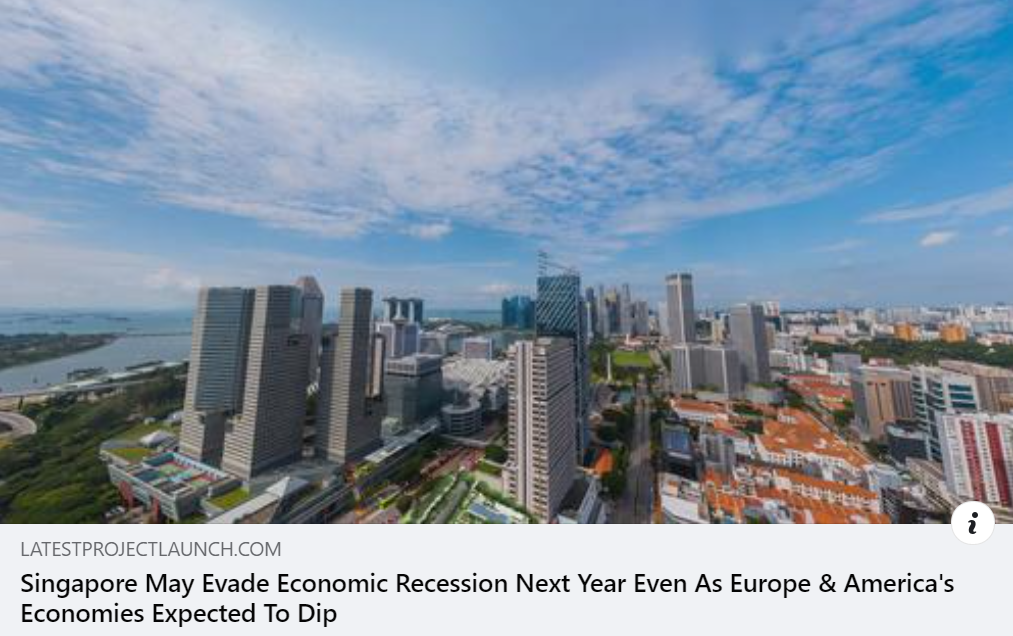This compares with 40 per cent global average across 24 markets. “Nearly half of the countries surveyed (showed) a year-over-year double-digit decline in the belief that their families will be better off in five years’ time,” said Edelman in a statement on the 2023 report.
Conducted in November 2022 by the Edelman Trust Institute, the 23rd edition of the Edelman Trust Barometer survey involved 32,000 individuals in 28 countries including Singapore, where a total of 1,135 individuals aged 18 or older residing in Singapore were interviewed.
The survey also noted that respondents in developed countries were less optimistic than those in developing ones and that respondents from the higher income group have greater trust in these societal institutions compared to respondents with low-income.
The results of The 2023 Edelman Trust Barometer survey is considered a leading indicator of trust and credibility among countries that measures levels of trust in institutions, including businesses, government, NGOs, and the media, across 28 countries around the world.
Among other questions, the respondents were given a list of four institutions — government, media, business and non-government organisations (NGOs) — and asked to indicate on a scale of 1 to 9 how much they trust each institution to do what is right, with 1 indicating a respondent does not trust them at all and 9 indicating a respondent trusts them "a great deal".
This trend is occurring against the backdrop of a wider spread of income-based trust gap in governments, businesses, the media and non-governmental organisations (NGOs), or what is collectively referred to by the report as "societal institutions".
The survey found that developing countries showed more optimism than developed countries. The following are the top three and bottom three countries in terms of percentage of respondents indicating an optimistic economic outlook:
- Kenya (80 per cent optimistic),
- Indonesia (73 per cent optimistic),
- India (73 per cent optimistic); compared to
- Japan (9 per cent optimistic),
- France (12 per cent optimistic)
- Germany (15 per cent optimistic)
"At a glance, the results of this survey may give an impression that societies with more access to global news are more pessimistic while societies with fewer access to global news seem more optimistic about their future as global news has been recently focusing on rising costs, mass layoffs taking place around the world since end of last year, predictions of global economic fallout heading towards recession, etc. These negative news affects economic optimism and deepen our economic fears" said Kiwi Lim, who has been observing market trends in Singapore for more than a decade.
The Edelman Trust Barometer is an annual survey conducted by the global communications firm Edelman. The survey measures levels of trust in institutions, including businesses, government, NGOs, and the media, across 28 countries around the world. The survey has been conducted for over 20 years and is considered a leading indicator of trust and credibility in society.
The survey includes both quantitative and qualitative research, including online surveys of over 33,000 individuals, as well as in-depth interviews with influential leaders and experts in different fields. The survey results are analyzed and presented in a report that includes insights into global trust trends, as well as country-specific findings.
The Edelman Trust Barometer survey covers a wide range of topics related to trust, including perceptions of the economy, government, media, and technology. The survey also looks at issues such as climate change, inequality, and diversity and inclusion, and how these issues affect trust in different institutions.
The insights from the Edelman Trust Barometer survey can be used by businesses, governments, and other organizations to understand how they can build and maintain trust with their stakeholders, and to identify areas where they may need to improve their communication or engagement strategies.
The Edelman Trust Barometer provides insights into the levels of trust that people have in institutions such as businesses, government, NGOs, and the media, as well as the factors that contribute to trust or undermine it. Some of the key insights from the survey include:
- Trust in institutions is low: Across the 28 countries surveyed, trust in institutions is generally low. The survey also found that trust in traditional media is declining, while trust in social media is low but stable.
- Trust is linked to competence and ethical behavior: The survey found that trust is closely linked to perceptions of competence and ethical behavior. Organizations that are seen as competent and ethical are more likely to be trusted by the public.
- Issues such as inequality and climate change are eroding trust: The survey found that issues such as economic inequality, social injustice, and climate change are eroding trust in institutions. People are increasingly looking to businesses and other organizations to address these issues and take a leadership role in creating positive social and environmental outcomes.
- Trust can be built through engagement and transparency: Organizations can build trust by engaging with their stakeholders and being transparent about their actions and decision-making processes, e.g. communicating openly about issues such as data privacy and security, and involving stakeholders in the development of policies and programs.
Overall, the Edelman Trust Barometer provides valuable insights into the factors that contribute to trust in institutions as well as governments and recommends organizations and governments to build and maintain trust with their stakeholders. By understanding these insights, organizations and governments can develop more effective communication and engagement strategies that help to build trust over time.









 RSS Feed
RSS Feed
